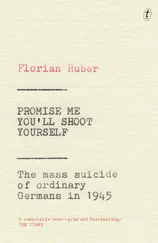“Do you trust me with it?”
“Certainly, or there wouldn’t be this science at all, where the two of us work together. Your own basic knowledge of yourself and truth is sound. Believe in it.”
“Go ahead then, or psychiatry will disappear.” (Laughter.)
“Your mother had trouble with a pregnancy when you were very small, did she not?”
“Yes, she miscarried. Twins.”
“And afterward went away to rest for a while?”
The light struck the past and there was a seeming sound of good, strong truth, like the pop of a hard-thrown ball into a catcher’s glove. Connect. Deborah listened to the sound and then began to tumble over her words, filling in the missing features of the ancient nightmare that was no more otherworldly than the simple experience of being left alone.
“The white thing must have been a nurse. I felt that everything warm had left. The feeling comes often, but I thought it could never have been true that I ever really was in such a place. The bars were crib bars. They must have been on my own crib…. The nurse was distant and cold…. Hey! Hey!” The now-friendly light struck something else and its suddenness made the small, prosaic connection seem like a revelation full of greatness and wonder. “The bars … the bars of the crib and the cold and losing the ability to see colors … it’s what happens now! It’s part of the Pit—it’s what happens now, now! When I am waiting to fall, those bands of dark across my eyes are the old crib bars and the cold is that old one—I always wondered why it meant more than just something you could end by putting on a coat.”
The rush of words ended and Dr. Fried smiled. “It is as big, then, as abandonment and the going away of all love.”
“I thought I was going to die, but at last they came back.” She paused in the flight and another sudden question took her, as if it had been there forever. “Why doesn’t everybody have black bands? Surely everyone is left alone sometimes, maybe for a week or two. Parents die, even, but the children don’t go nuts and have mourning bands going up and down their retinas.” It had come to her as another deeper proof that she was mismade somehow, that the fault was as elemental as her genes, a bad seed. She expected the doctor’s sympathetic demur, a familiar and comforting lie with which she could light her own way back to Yr. Instead the words were strong.
“The memory may not change in form, but years of underlining give it a weight that can become tremendous. Each of the many, many times you are called to remember the cold of abandonment, the bars, and the loneliness, this experience says deep inside you, …You see? That’s the way life is, after all.’”
The doctor rose to mark the session’s end. “We have done very well this time, seeing where some of the ghosts of the past still clutch at you in the present.”
Deborah murmured, “I wonder what the price will be.”
The doctor touched her arm, “You set the price yourself. Tell all of Yr that it dare not compromise you in this search of ours.”
Deborah pulled her arm away from the doctor’s hand because of some obscure fear of touching. She was right, for the place where the hand had paused on her arm began to smoke and the flesh under the sweater sleeve seared and bubbled with the burning.
“I’m sorry,” the doctor said, seeing Deborah’s face go pale. “I didn’t mean to touch you before you were ready.”
“Lightning rods,” Deborah answered, looking through the sweater arm to the charred flesh, and seeing how terrible it must be when one was the grounding path for such power.
The doctor, lost under the leap of the logic, could only look past the shaking body of the patient before her to where the hunted spirit had flashed for a moment in gladness and now was gone. “We will work hard, together, and we will understand.”
“As long as we can stand at all,” Deborah said.
Time ground on. Deborah was flung and rebounded like a tennis ball in play from stage to stage in Yr, from Earth to nowhere, from sunlight to black window, over the divisions that demarcate the time of the sane, trying, in passage, not to be cruel to Mr. Ellis. She freed him from Hobbs’s name, she was obedient if not cheerful, and she bore his martyrdom—her own existence—as well as she could. A new group of nursing students had come and gone, some comforted that the mentally ill could no longer strike fear in them, some running in terror from the whip of subtle similarity between the madwomen’s uttered thoughts and their own unuttered ones. Another group had come and was being broken in on Constantia’s spontaneous nudity, Helene’s graceful and bone-breaking violence, and Deborah’s locked eyes. A young nurse had said too loudly, “That kid looks through me as if I’m not here at all.” Trying to give comfort, Deborah had later whispered to the nurse, “Wrong not. ” She was saying that it was not the pretty nurse who was not there but the ugly patient, and still the wrong-coming words only made the frightened student more alarmed, and Deborah saw again the uncrossable expanse between herself and the species called “human being.”
Deborah was standing in the small seclusion room forward of the hall. Her lunch tray had been brought by a nurse, who fumbled with the keys (her difference), and was pale, remembering perhaps the secret bedlam horror-nightmares of her own keeping. Those, at least, Deborah shared, believed, understood. She whispered her comfort and saw the nurse get hard in the face with fear, and turn, stumbling over her own feet to hang on the fraction of the edge of her balance.
Deborah put out a hand almost instinctively, since clumsiness had made them kin, and the hand got to the nurse’s arm and held her for a second. Balance caught the young woman and swung her toward vertical again and she pulled her arm away, strong in her fear, and tottered out of the room.
Suffer, Deborah said to all the assembled ones in Yr, the Yri metaphor for greeting. I am a conductor of lightnings and burnings. Passes through me from doctor, flows to nurse. Here I have been copper wire all the time and people had been mistaking me for brazen!
Anterrabae laughed. Be witty, he said, shedding hairsparks in his unending, unconsuming, fiery fall. Outside this room, ward, hospital, such as that and that even, when her shift is through, laugh, walk, breathe, in an element that you will never understand or know. Their breath in and out, blood, bones, night and day are not of the same substance as yours. Your substance is fatal to them. If they are ever infected with your element they will die of it or go insane.
“Like the Pit?”
Exactly so.
Deborah cried out in horror at her power to destroy. She fell on the floor, moaning softly, “Too much power, too much hurt. Don’t let anyone hurt like that—not like that! Not like that … like that …”
Then she was standing above herself, dressed in her Yri rank and name, kicking the herself that was on the floor, kicking her low in the stomach and in the tumorous place that gave like a rotten melon. When the ceremonial creak of leave-taking sounded, the sky was burdening itself with darkness outside the barred window. She looked out, finding herself erect and in front of the window and saying quietly, “Let me die, all of you.” If they would all come together against her, she knew that she could not live. There was no joy or happiness or peace or freedom worth this suffering. “End me, Anterrabae, Collect, all you others. Once and for all, crush me against the world!”
The light was put on from the outside and the key grated in the lock. “Just checking,” the change-of-shift nurse said gaily, but when she saw Deborah’s face, she turned back to the one behind her. “Finish the ward check and get a pack set up.”
Читать дальше












